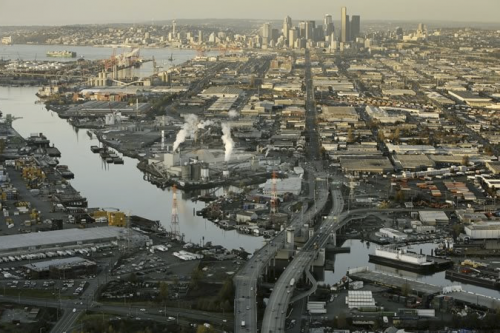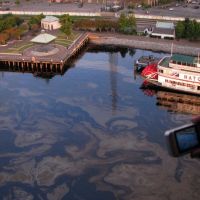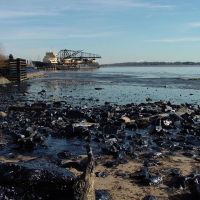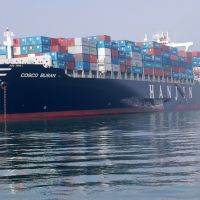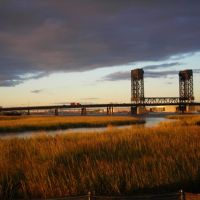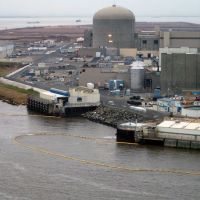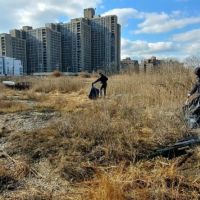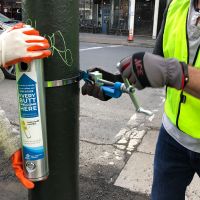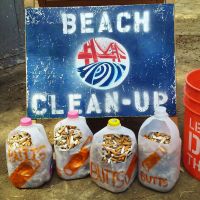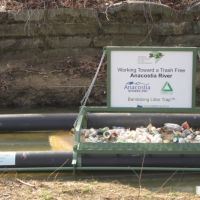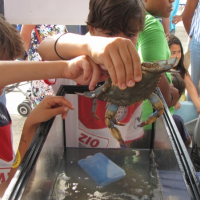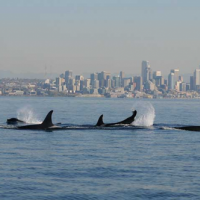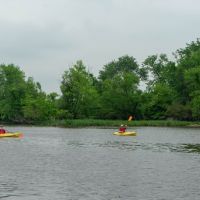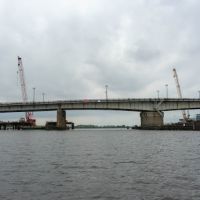Spotlight on Urban Pollution: How NOAA Works to Keep Urban Waterways Clean and Recover After Pollution
Urban coastal communities present unique challenges when addressing pollution. The impacts can range from ecological to social. Pollution from past and current commercial and industrial activities has impaired our rivers and coasts.
Hazardous waste, including oil spills, can have a devastating impact on coastal communities—affecting recreational and commercial activities such as fishing. NOAA is responsible for assessing and restoring river and coastal resources injured by hazardous waste releases. NOAA focuses on hazardous waste releases with the potential to harm marine and coastal resources, including chemicals like PCBs, and dioxins, PAHs, and toxic metals such as lead and mercury. These substances are released into coastal habitats and waterways from many commercial and industrial activities, such as shipbuilding, oil storage and transfer, and chemical manufacturing, among others.
This week, we’re taking a look at the different types of urban industrial pollution, how NOAA responds to pollution events and aids in the recovery of natural resources lost due to pollution, and what you can do to help keep pollution out of your waterway. In the blogs below, read about outdoor recreation on Washington, D.C.’s Anacostia River, urban community marine-debris cleanups, and how NOAA coordinates with the Urban Waters Federal Partnership on the Delaware, Anacostia, and Passaic river watersheds.
A Look at Oil Spills in Urban Centers
What’s different about spills in urban environments? When we hear or read about an oil spill, we often envision thick oil sullying a wilderness or open ocean environment—but most spills occur in more urban areas, where oil terminals, refineries, ports and marinas, or rail facilities are situated. In our latest blog, check out some oil spills that occurred in industrial and urban waterways and the types of impacts that they created, and the efforts of NOAA and partners to protect and restore injured resources ... Keep Reading.
Marine Debris Close to Home: Cleaning Up Our Urban Shores and Waterways
The coastal urban environment is an important place for people to enjoy a little bit of nature, and equally valuable for the animals and plants that make it their home. However, with people comes trash, and coastal areas close to large population centers can face a heavy burden of marine debris. The NOAA Marine Debris Program works with partners across the nation to prevent and remove marine debris in urban areas. ... Keep Reading.
The Value of Urban Waterways
You might be surprised to learn what swims through America’s cities. Even waterways with a history of pollution are full of life and are vital parts of local communities. In our latest blog, explore five urban waterways across the U.S to see the unique natural resources found there and learn where NOAA and co-trustee partners are working to restore urban habitats and communities ... Keep Reading.
The Anacostia River: Challenges and Opportunities for Outdoor Recreation in the Heart of Washington, DC
The Anacostia River in Washington D.C. has a long history of industrial pollution, but in recent years local advocates, government agencies, and water utilities have made great strides in restoring this urban river. Learn more in this guest blog from co-author Erin Garnass-Holmes, ambassador to the Anacostia Watershed Urban Waters Partnership ... Keep Reading.
The Nation's Founding Fish Returns to America's Most Historic Small Watershed
In this guest blog from our partners at the Brandywine Conservancy, learn about the Conservancy's reinvigoration of a 300-year-old quest to bring back our nation's founding fish to America's most historic small watershed ... Keep Reading.
Three Ways You Can Reduce Your Household's Pollution Footprint
In our latest blog, NOAA’s Illinois-Indiana Sea Grant Pollution Prevention Extension Specialist Sarah Zack shares tips for how to reduce your household pollution footprint. ... Keep Reading.
Restoring Polluted Urban Areas Helps the Environment and Communities Rebound
NOAA and partners have supported communities through restoration at two urban Superfund sites in Massachusetts and Washington. We’re increasing access to parks, and getting locals involved in habitat restoration through training and job opportunities. ... Keep Reading.
more images

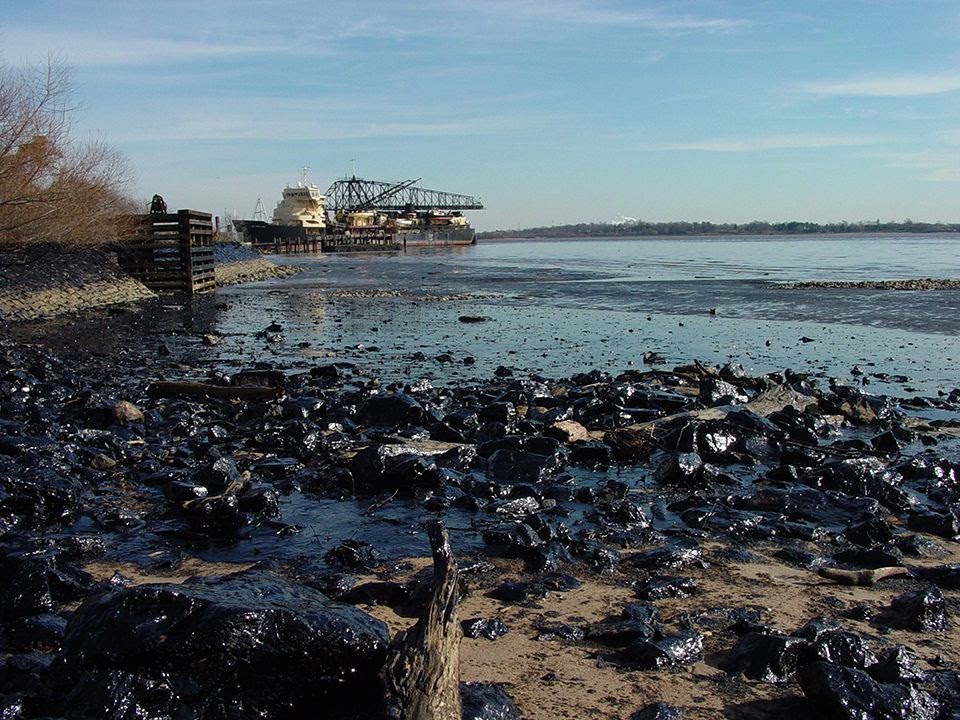
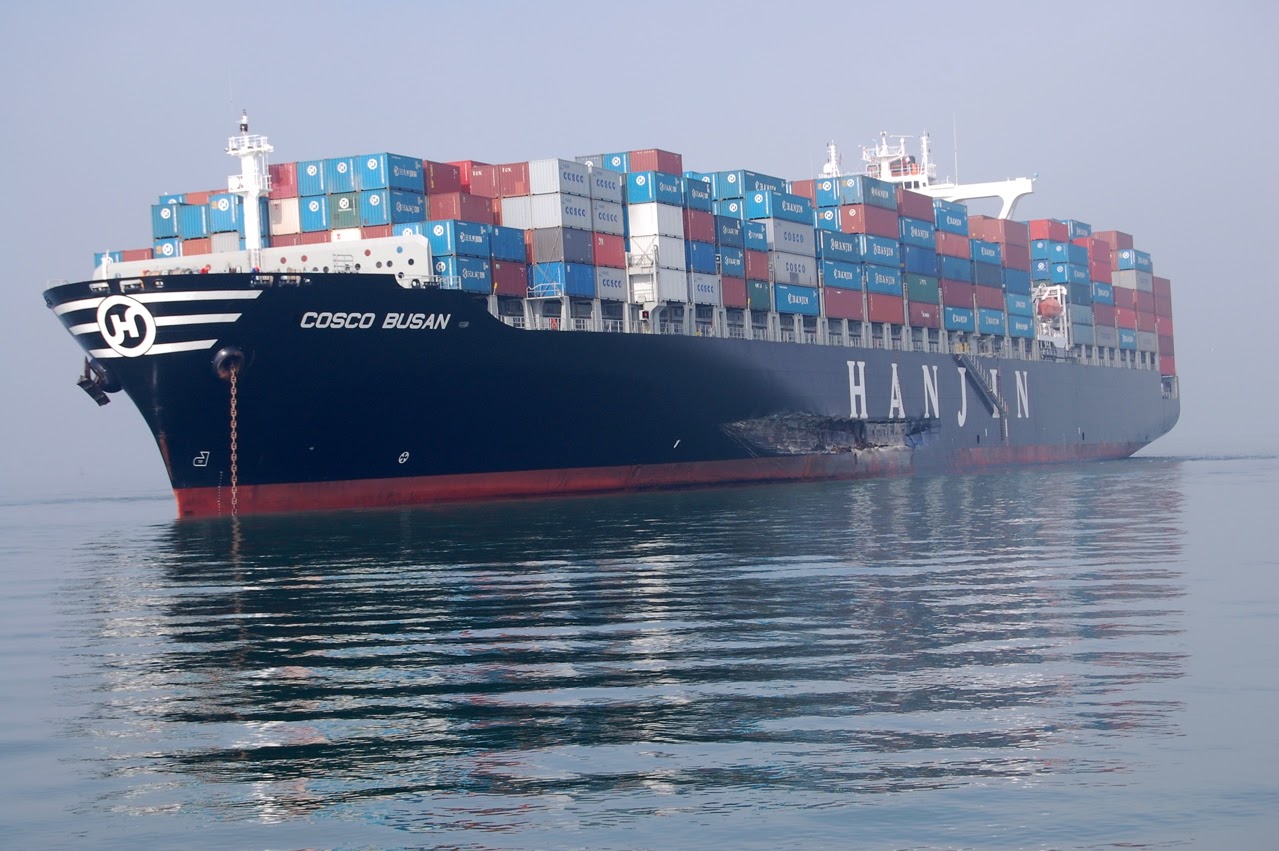
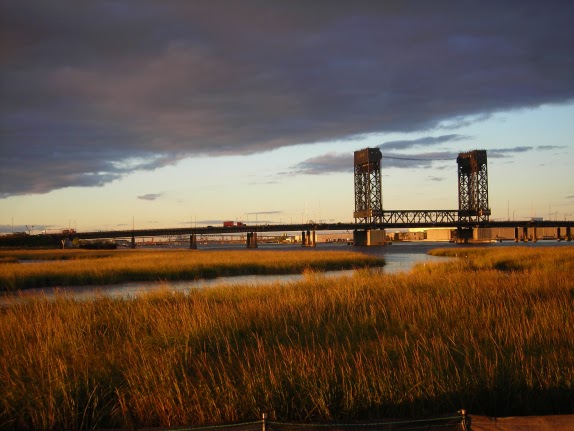
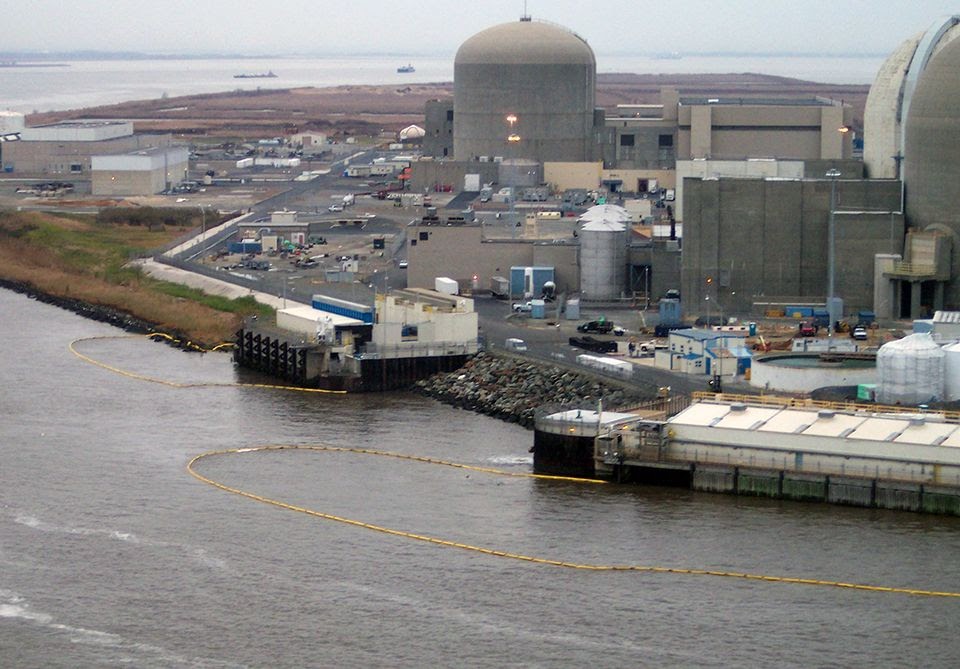
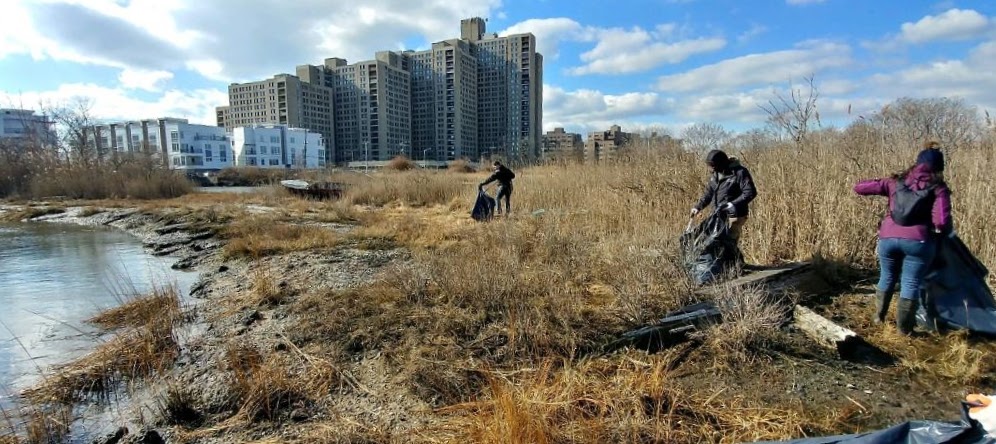
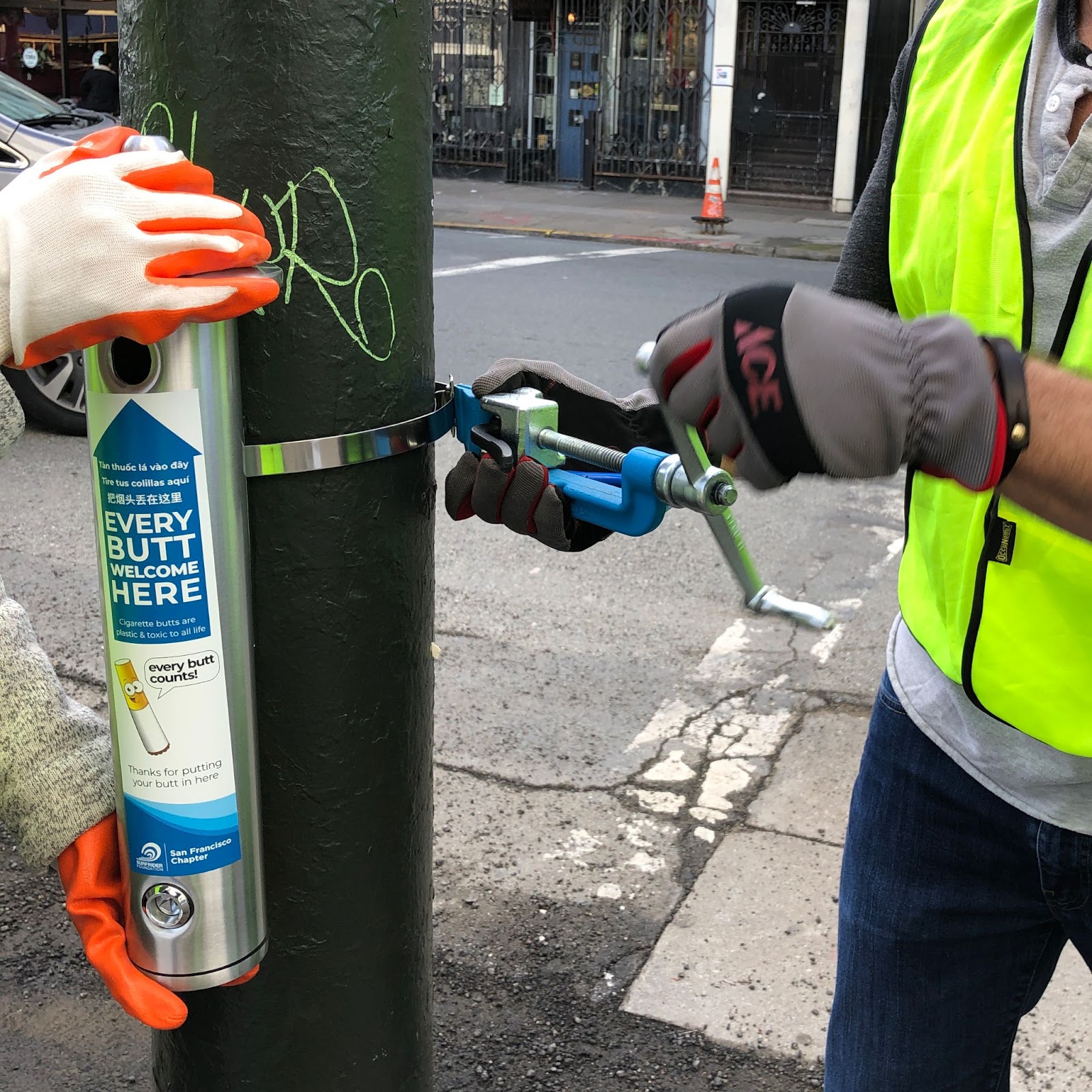
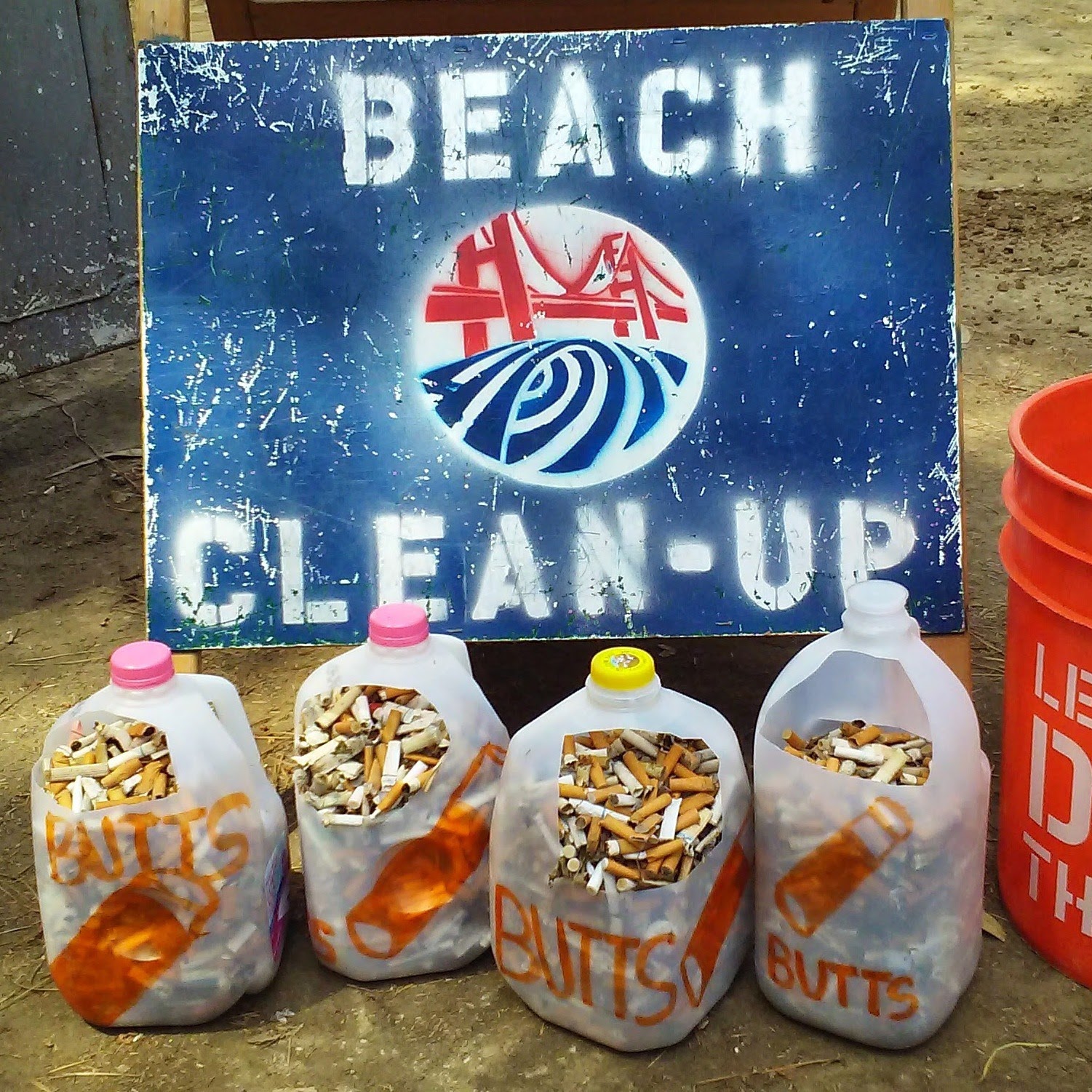
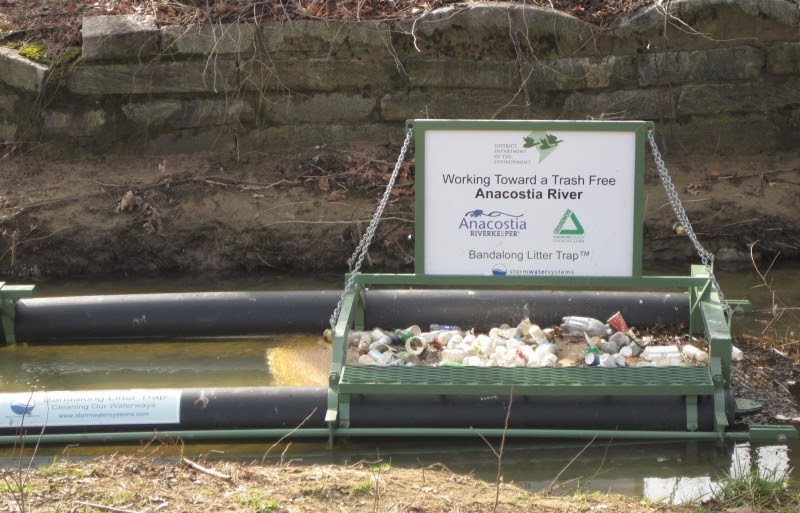
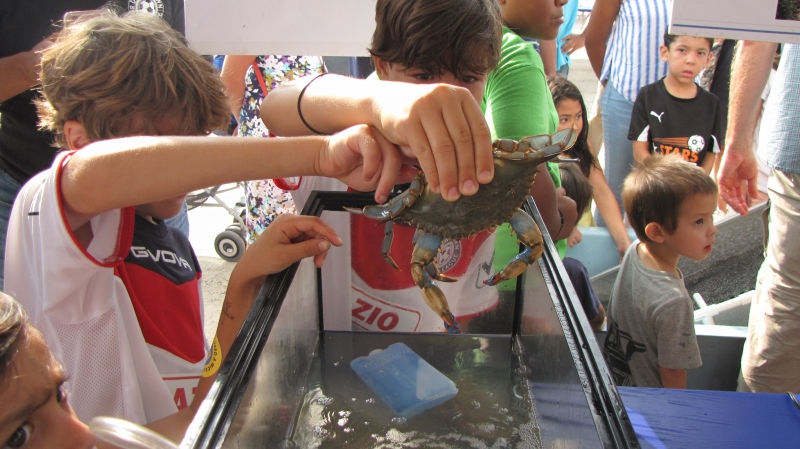
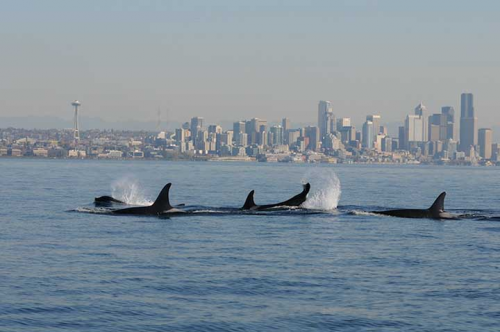
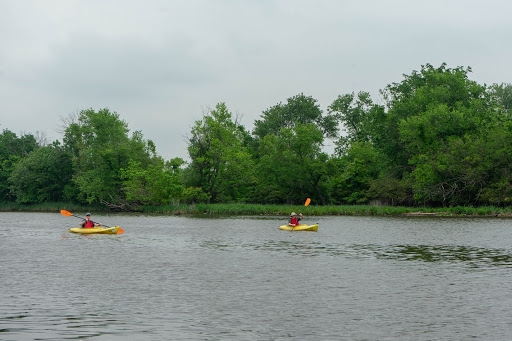

 An official website of the United States government.
An official website of the United States government. 
